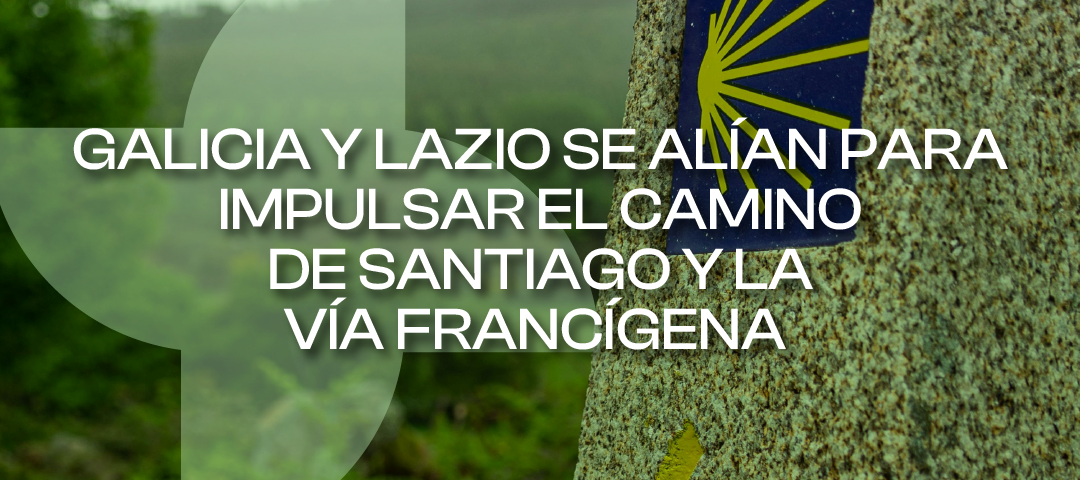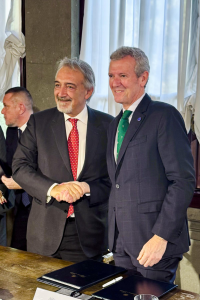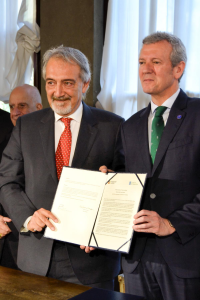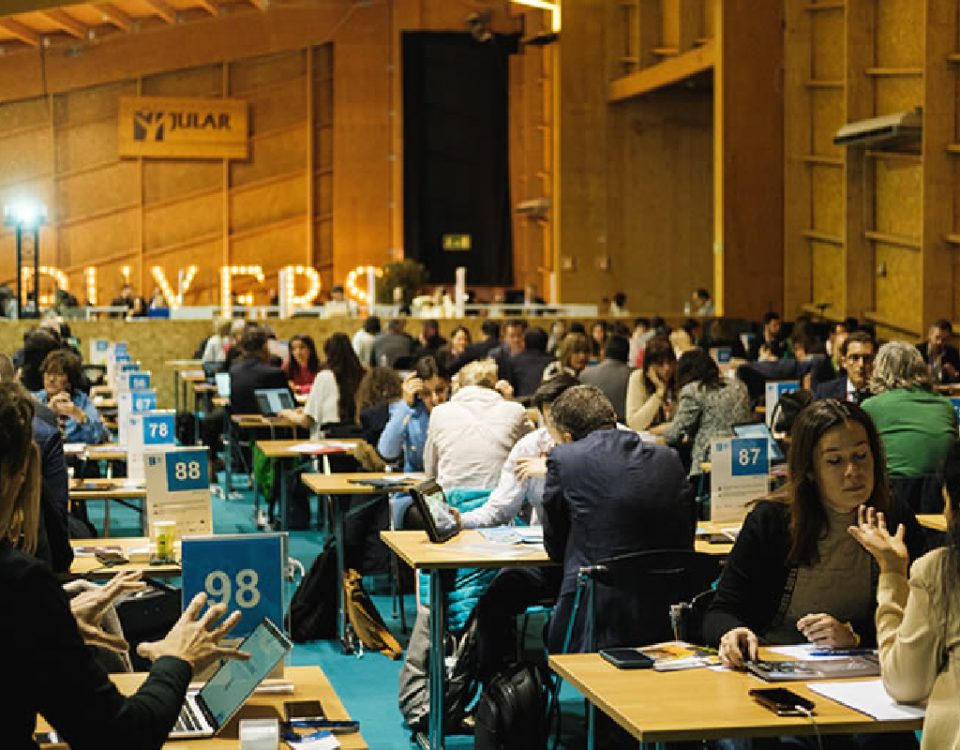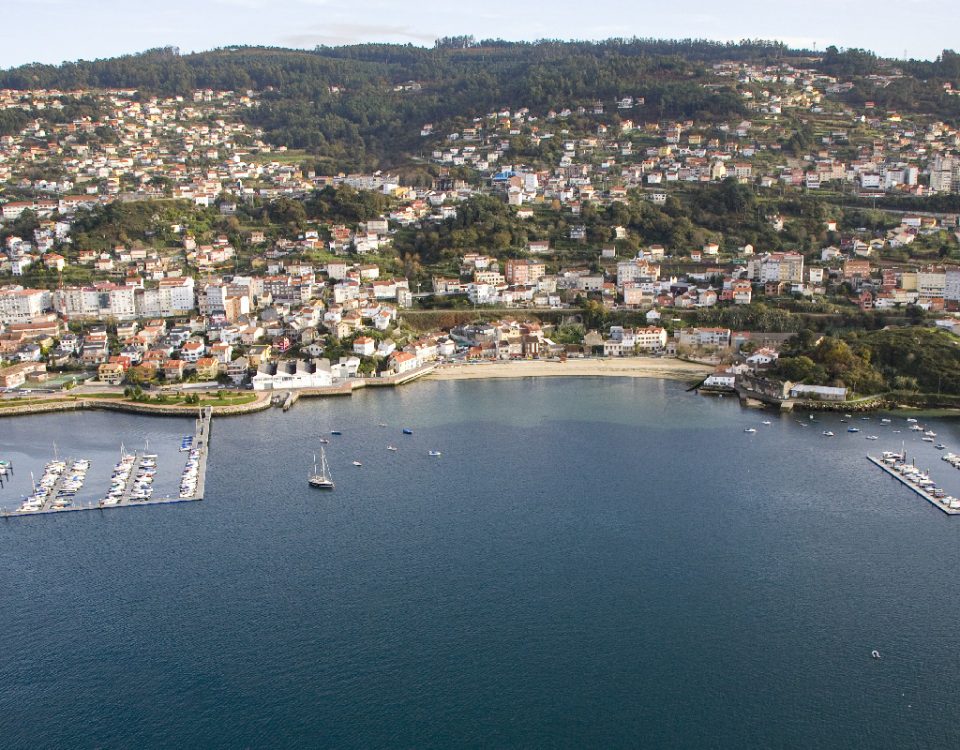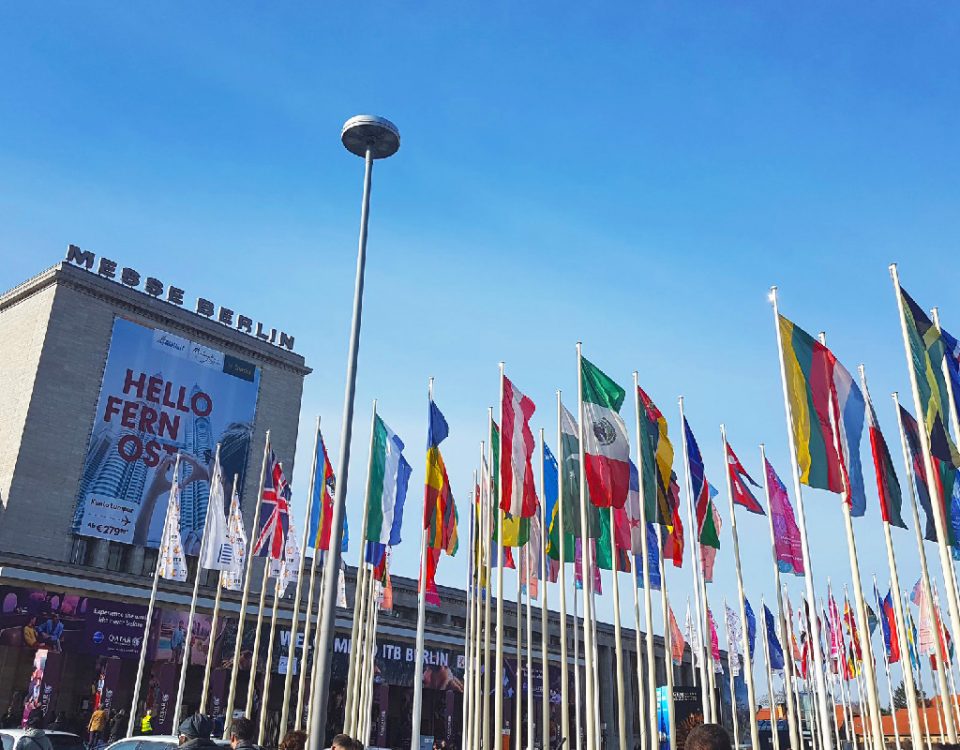- El mejor turismo de galicia
Galicia and Lazio join forces to promote the Camino de Santiago and the Via Francigena internationally
Galicia and Lazio join forces to promote the Camino de Santiago and the Via Francigena internationally
- Both regions sign a cooperation agreement to enhance tourism promotion and the exchange of experiences between the two most emblematic pilgrimage routes in Europe.
The president of the Xunta de Galicia, Alfonso Rueda, and the president of the Italian region of Lazio, Francesco Rocca, have signed a memorandum of understanding in Rome for the joint promotion of the Camino de Santiago and the Via Francigena. This alliance seeks to strengthen the international projection of both historical itineraries, promoting their cultural, spiritual and economic value through coordinated actions in the field of tourism, research and training.
The pact is sealed in a particularly significant context for both routes. In 2025, the Catholic Church celebrates the Roman Jubilee, while in 2027 the next Xacobean Year will take place, two milestones that will attract thousands of pilgrims to Rome and Santiago de Compostela. Within this framework, the collaboration between Galicia and Lazio will facilitate joint participation in international fairs, the development of promotional activities and the exchange of knowledge on tourism management and sustainability.
The agreement takes on special relevance given the growing interest of Italian pilgrims in the Camino de Santiago. In 2024, nearly 30,000 walkers from Italy received the Compostela, which positions the country as the second nationality with the most presence on the Jacobean route, only behind the United States.
Slow tourism and sustainability as axes of the agreement
The Camino de Santiago and the Via Francigena share an essence based on slow tourism, promoting a way of traveling focused on the connection with the environment, culture and history. Through this agreement, both regions will reinforce their heritage preservation and accessibility strategies, betting on a tourism model that guarantees an authentic and sustainable experience for the pilgrims of the future.

